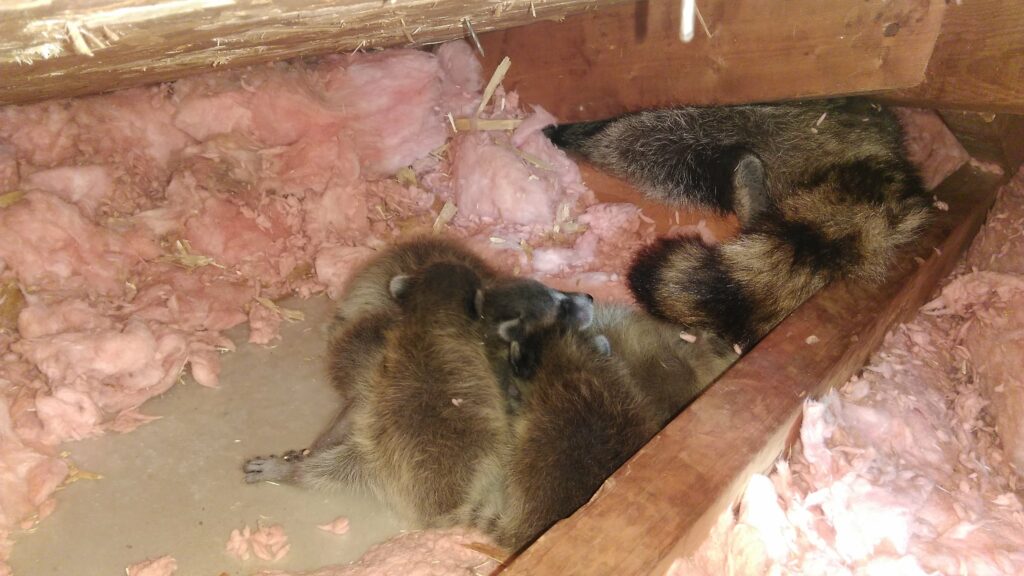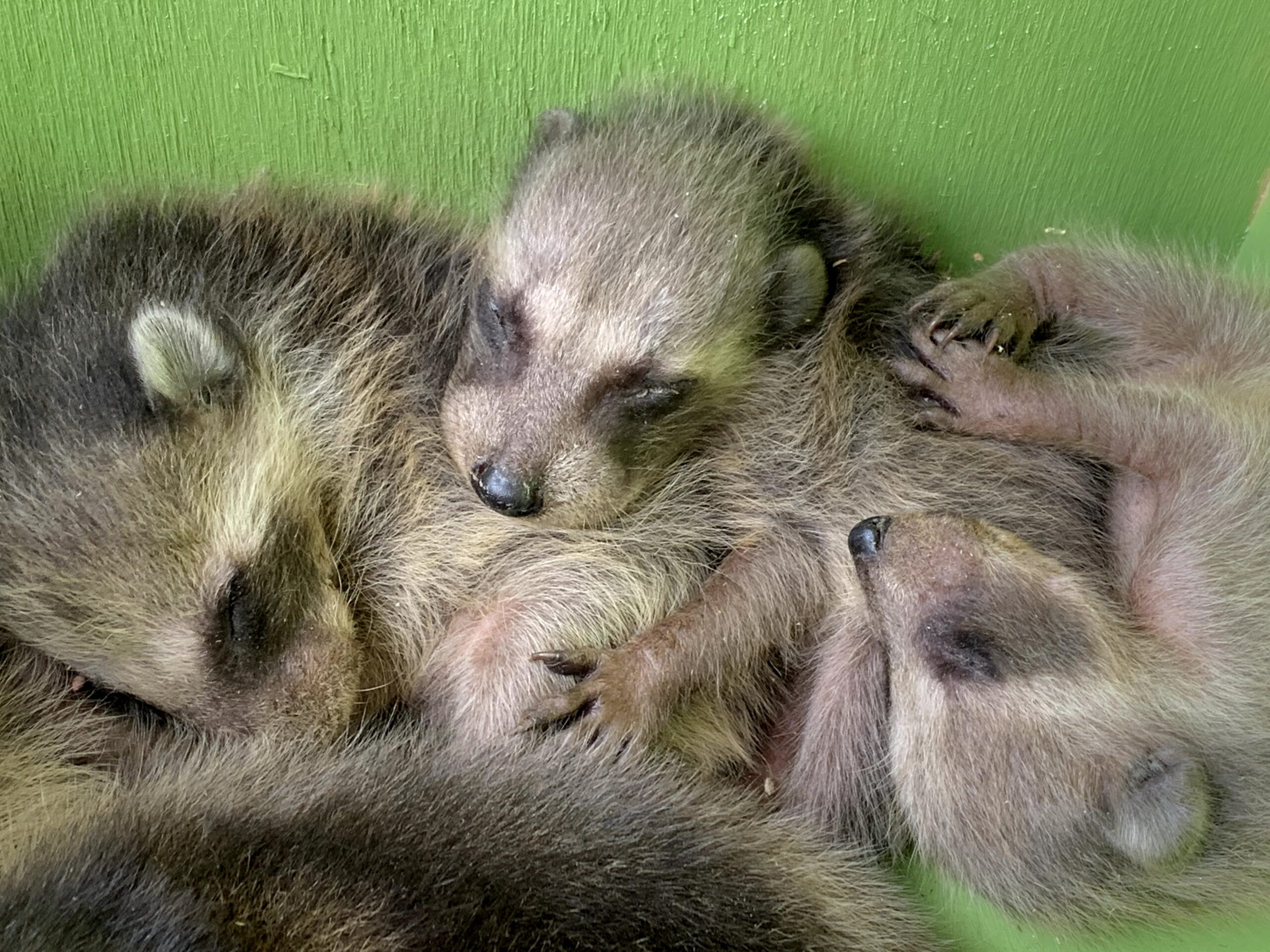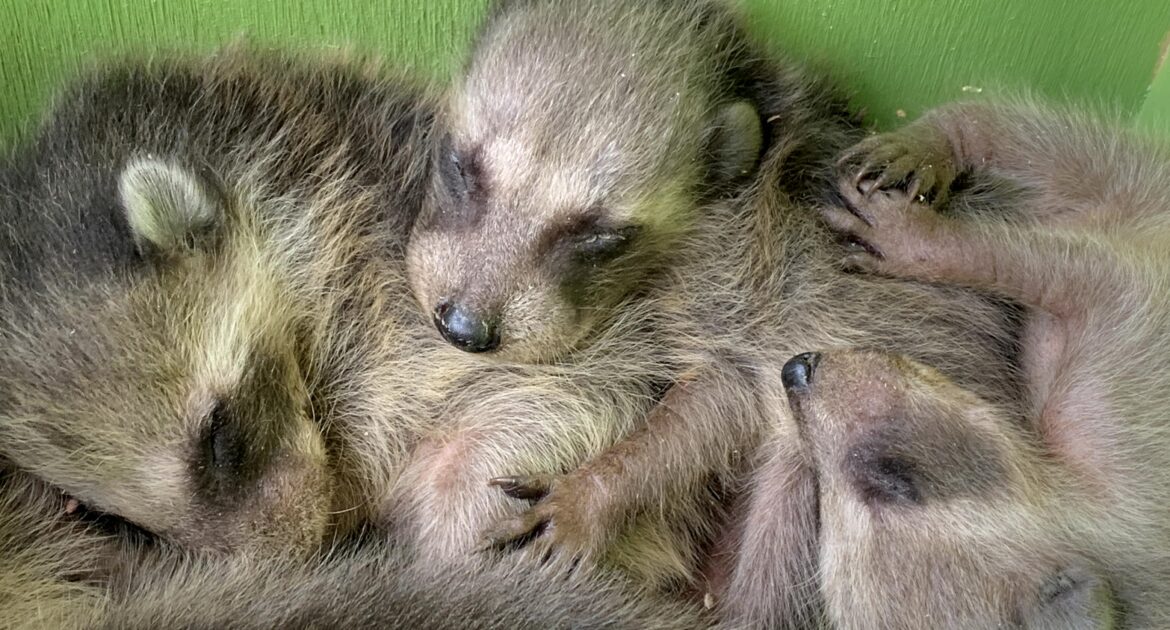Whether you call them trash pandas, bandits or raccoons, these cute little animals are some of the most destructive pests that plague homeowners. Raccoons are smart and can be tenacious when it comes to finding food and taking care of their young. Here’s what homeowners need to know about raccoon mating season and what to do when you see a baby raccoon in Hamilton to stay safe.
When Do Raccoons Mate?
Male raccoons may have multiple partners, but females only mate with one male raccoon during the breeding season. Typically, mating occurs during the winter months, but it can continue through spring into June. So, when do raccoons have their babies? About 63 days after they mate. Most raccoon babies are born in early spring through June or July. A female raccoon can have a litter of one to seven kits, but a typical litter is three to four. Females generally only have one litter per year.
How Do Momma Raccoons Take Care of the Babies?
Newborn kits are blind and deaf at birth. The mother raccoon cares for the babies exclusively. After about three weeks, they can start to see and hear. Baby raccoons aren’t weaned until they are 7 to 10 weeks old. They may stay with their mother throughout their first year, not going off on their own until they are ready to have a family on their own.
Are Baby Raccoons Dangerous to Humans?
Baby raccoons might not seem hazardous because they’re so tiny, but they can bite and scratch you if you try to pick them up. Mother raccoons tend to be aggressive when the babies are in danger, so you also risk being attacked by adult raccoons. Raccoons carry parasites, mites, and other diseases, so it’s important to leave a baby raccoon alone if you find one. Contact a professional wildlife removal service to keep your family and pets safe.

How Can You Tell If You Have Raccoons in Your Home?
During the breeding season, you may have a raccoon family move into your home. Here are some of the signs:
- Seeing an adult raccoon on your property foraging for food.
- Hearing rustling or thumping in your walls.
- Hearing cries and chirps of animals in your attic or walls. Baby raccoons can be noisy.
- Seeing damage to your soffits, siding or roof vents.
Always let a professional wildlife removal service take care of wildlife, especially raccoons, on your property.
How Do You Know if a Baby Raccoon Is Abandoned?
Most raccoon mothers have one or two dens so that the kits can be moved if danger is near. When a baby raccoon is alone, it does not always mean it is abandoned. The best thing to do when you see a baby raccoon alone is to leave it alone for a few hours to see if the mother returns. Keep children and pets away from it.
If the mother doesn’t return in a few hours, or if the raccoon seems in distress, you should call a local wildlife removal service. If the kit has wounds or is covered in insects, the mother may not be returning. Don’t try to take the raccoon in your home or put it in a box. Baby raccoons are not born with rabies or other parasites, but they can get rabies from their mothers when they are very young.
When you have raccoons, make sure to contact the professionals with Skedaddle Humane Wildlife Control to get back to a critter-free home. Not only do we remove the wildlife from your home, we also take preventative measures to prevent anything from moving back in. Contact our Hamilton office if you have wildlife problems.




